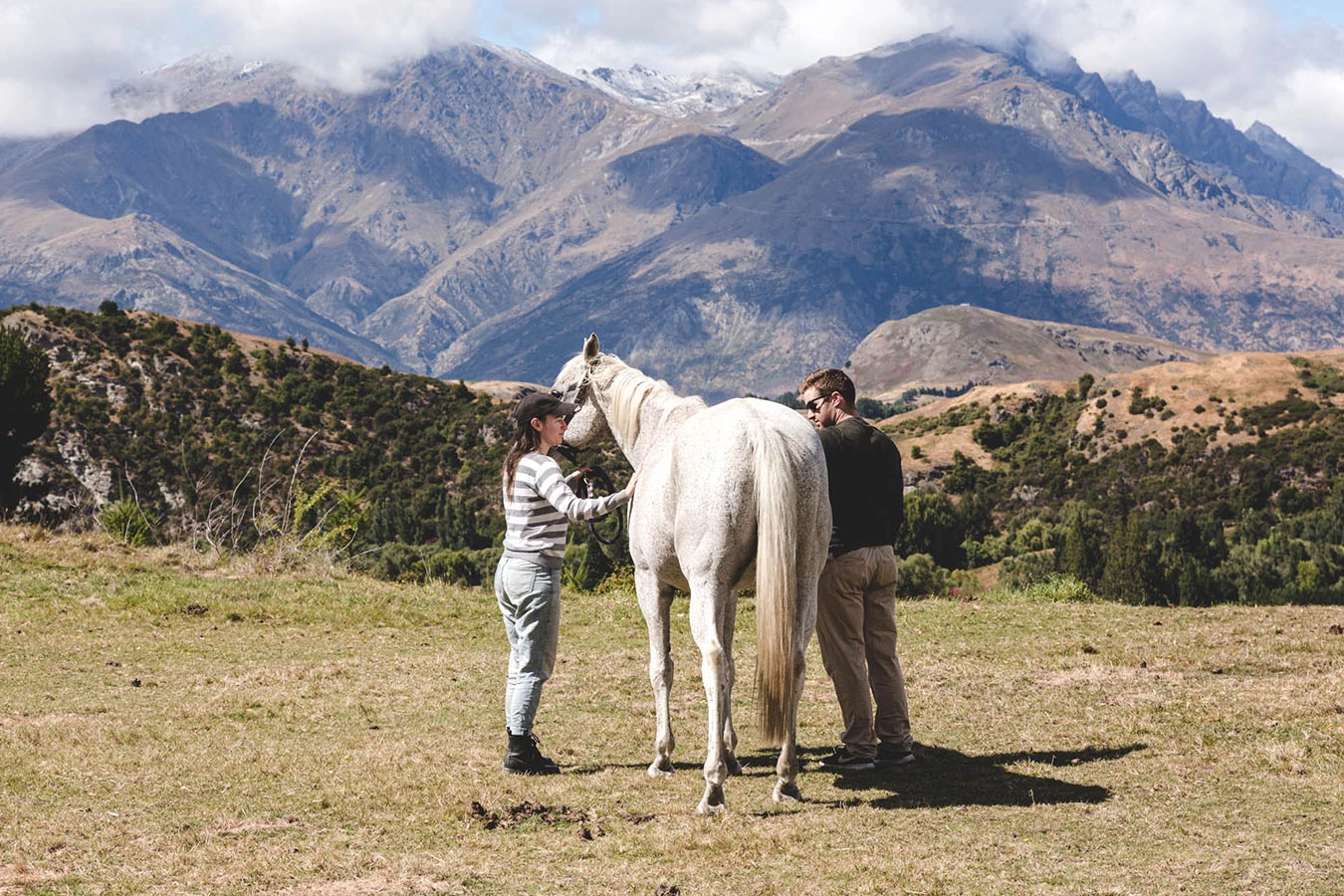

However you have arrived here, I'm glad you're here. Read on to see if Equine Therapy might help you.
Equine Assisted Psychotherapy (EAP) is a form of therapy that involves a therapist and horses to help individuals improve their mental health and emotional well-being. It is an experiential approach to therapy that involves interacting with horses in various ways, such as grooming and leading them.
During EAP sessions, a trained therapist works with the client and the horses to address specific therapeutic goals. The therapist observes the client's behaviour and emotions while interacting with the horses, and uses these observations to facilitate discussion and reflection on the client's experiences.
EAP can be beneficial for a range of mental health issues, including depression, anxiety, trauma, and eating disorders. The presence of the horses can help individuals develop self-awareness, increase their ability to regulate their emotions, and improve their communication and interpersonal skills.
It is important to note that EAP is not horseback riding or horsemanship lessons, but a therapy session that has the horses as an integral part of the therapeutic process.
Horses are co-facilitators in Equine Assisted Therapy (EAP) for several reasons. First, horses are social animals that have an innate ability to sense and respond to the emotions of others. This makes them excellent partners for therapy, as they can help clients become more aware of their own emotions and nonverbal communication.
Additionally, horses are large, powerful animals that require a certain level of respect and assertiveness to work with effectively. This can be especially helpful for clients who struggle with issues related to power and control, as it provides a tangible way to practice assertiveness and boundary-setting.
Furthermore, working with horses can be a very grounding and calming experience, as it requires being fully present in the moment and focused on the task at hand. This can be particularly helpful for clients who struggle with anxiety or trauma, as it can help them learn to regulate their emotions and stay present in the moment.
Overall, horses provide a unique and powerful tool for therapy that can help clients develop self-awareness, emotional regulation skills, and healthy interpersonal relationships.
I incorporate a trauma-informed approach and can help you to increase awareness of emotions and behaviours that are no longer serving you well. Evidence-based practice is incorporated with experiential learning.
Queensberry/Wanaka, New Zealand